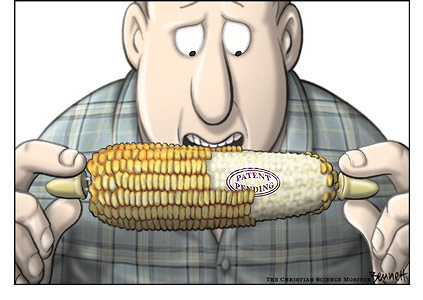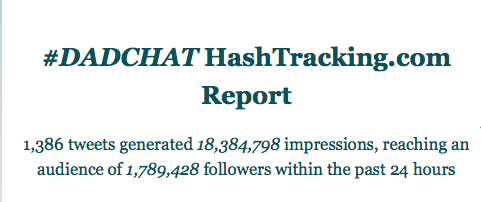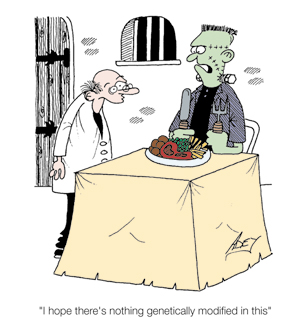What are we eating? What do our kids eat? California is asking this question via Prop 37 which is simply asking food manufacturers to include when GMOs are in our food. GMOs are Genetically Modified Organisms. This was a passionate #DadChat on Thursday, November 1 with respectful dialogue on both sides of the issue. Sadly, the official transcript is incomplete due to server issues, but below are the rough stats and I know we had over 200 people, participating!
Congrats to last night’s book winners: @JodiOkun and @dbvickery. We will be giving away two copies of my new book – coming out very soon (see the cover below) – every #DadChat until Christmas! Only one book per person/winner, please!
Previous winners are: @Dr_Weberman, @DadBlunders, @ManvDadhood, @jebbing9, @Sonya_LeanOnUs, @ReadBradtheDad, @PatrickGWright, and @GinaValley.
We discussed this with two advocates on behalf of Prop 37, Leah Segedie (aka @BookieBoo) and Zuri Allen (tweeting from @CARightToKnow)
The issues were plenty:
- This isn’t a referendum about whether genetic engineering is good or bad, it’s simply saying let’s label these foods and give consumers the information to know what they’re buying and to make choices for themselves.
- People around the world already have access to this information and Californians have a right to have it too. More than 50 countries — including all 27 members of the European Union, Japan, India and even China — already require labeling for genetically engineered foods. This type of labeling is standard operating procedure in most of the industrialized world.
- The opposition is trying to make labeling sound complicated and confusing but this is about one thing: putting accurate labels on food so consumers can make informed choices about what they buy and eat.
- The huge majority of people want genetically engineered foods to be labeled. Polls show that nine out of ten voters in the U.S. and in California back labeling (see Mellman 2012, Reuters 2010, Zogby 2012). An April poll byKCBS in San Francisco found 91% want labeling.
- This is part of a larger movement for transparency in our food system; people want to know where their food comes from, how it’s grown, and they want to know specifically about whether their food is genetically engineered in a lab. We have a right to information about what’s in the food we buy and eat.
- We have a right to know what’s in the food we eat and feed our families, so we can make informed choices. Informed choice is a fundamental right.
- Food labels already list the calories, fat, allergy information and ingredients. All this measure does is require that consumers be able to see if the food has been genetically engineered so they can make informed choices.
- Having tools to know what you’re buying is a good thing. Information is power, and that power belongs in the hands of consumers. We’re voting for information in November. It doesn’t cost anything for companies to give us information.
Here are FAQs about Prop 37
Why do we need to label GMOs? We have the right to know what’s in the food we eat and the overwhelming majority of people want to know if their food is genetically engineered. Nearly a million registered voters in California signed petitions for this measure and thousands of volunteers worked to get it on the ballot. The people are demanding this, and this is a true people’s movement.
What would this initiative do? This initiative is simple; it requires companies to add a few words to their labels, two years from now, if their food contains genetically engineered ingredients. This type of labeling is already required in more than 40 other countries. The law requires labels to say, “partially produced with genetic engineering” or “may be partially produced with genetic engineering.”
What are genetically engineered foods? These are crops that have had their DNA artificially altered by genes from other plants, animals, viruses or bacteria. This type of genetic modification occurs in a laboratory and cannot be found in nature.
Which foods are genetically engineered? Some of our most common food crops have been genetically engineered without our knowledge, including a high percentage of corn (85%), soy (91%), sugar beets (95%) and cotton (88%). Processed foods containing these GMO crops (i.e., corn syrup, soy sauce, soy lecithin, cottonseed oil) would have to be labeled.
Are GMOs safe? The US government does not require safety studies of genetically engineered food, and there are no long-term human health studies. A growing body of evidence suggests that genetically engineered food can food can be toxic, allergenic and less nutritious than its natural counterparts. Experts around the world agree that by labeling genetically engineered food, we can help identify any adverse health reactions that these foods may cause
Who supports Prop 37? The initiative is backed by a broad range of consumer, farm, environmental and health advocates. Major supporters include Public Citizen, Sierra Club, American Public Health Association, United Farm Workers, California Certified Organic Farmers, Organic Consumers Association, Consumer Federation of America, Nature’s Path, Lundberg Family Farms, Organic Valley, Dr. Bronner’s, Eden Foods, Mercola.com, Center for Food Safety, Food Democracy Now!
Who are our donors? Thousands of people have contributed money to the California Right to Know campaign, many of them small donors contributing an average of $50. Larger donors include California businesses such as Lundberg Family Farms, Straus Family Creamery, Dr. Bronner’s Magic Soaps, and national groups such as Dr. Mercola and the Organic Consumers Association.
Who is opposing our initiative? Big corporations like Monsanto have spent millions of dollars lobbying to keep information about genetic engineering hidden from consumers. The main opposition to our initiative appears to be the group “Stop Costly Food Labeling,” funded primarily by two trade groups based in Washington DC (Biotechnology Industry Organization and Grocery Manufacturers Association) which are funded Monsanto, big chemical companies such as Dow and DuPont, as well as Kraft and other large food manufacturers that routinely market genetically engineered food as “natural.”
Is there increased cost to consumers? No, the initiative simply requires adding a few words to existing labels, and companies have 18 months to change their labeling, which they typically do in that time frame anyway. The law is easy to comply with. If companies are making foods with the 5 or 6 GMO crops, and they aren’t sure about the source, they can put “may be partially produced with genetic engineering” on the label.
Will there be lawsuits? The opposition is making inaccurate claims regarding so called “bounty-hunter lawsuits.” There are no bounty hunter fees in our initiative and no incentives for lawyers to sue. There is no reason to believe companies will violate the law; most companies honestly label their food for calories, fat content, allergy information and other information consumers want to know, whether or not that information is favorable to product sales. This is the same thing: it’s a simple label and we expect that companies will comply with the law and there will be no need for lawsuits.
Why the exemptions? Certain exemptions were included for practical reasons to make the law easier to comply with. The initiative was written to encompass the foods that people eat most frequently — food on supermarket shelves. Exemptions include food sold in restaurants, alcohol and animals that have been fed genetically engineered feed. You can read the full initiative on our website.
Is the natural language confusing? Claiming that “the language is confusing” is a standard approach of opponents. In this case, the opposition is trying to convince people that the Right to Know initiative will prevent non-GMO foods, such as canned olives, from being marketed as “natural.” This is false. The initiative applies only to genetically engineered foods. The California Attorney General’s office has already rejected the opposition’s claims that the initiative could be applied to non-GMO foods. The AG’s summary of the ballot initiative clearly states that the initiative applies to genetically engineered foods, not other foods. This is a non issue.
What about court challenges; does this conflict with federal law? We’re confident the California Right to Know initiative will withstand any court challenge. States already have the right to require labeling. The Food Drug and Cosmetic Act expressly allows states to add language to labels so long as the feds don’t require language on the same subject. Case closed. Big ag already fought that battle and lost. Alaska already has a law on the books requiring labeling for genetically engineered fish.
Are out-of-state funders financing this campaign? These accusations come from Washington D.C. based lobby groups. We have thousands of donors, and some of our largest donors are well respected California businesses such as Lundberg Family Farms and Straus Family Creamery. We also had thousands of California residents gathering petitions, many of them moms and grandmothers who are not typically out on the streets campaigning for political issues. Nearly a million registered voters in California signed our petitions to get this issue on the ballot. This is very much a homegrown initiative with huge support from the people of California who want to know what’s in their food.
The opposition is funded almost entirely by out-of-state interests, primarily DC-based lobby groups.





